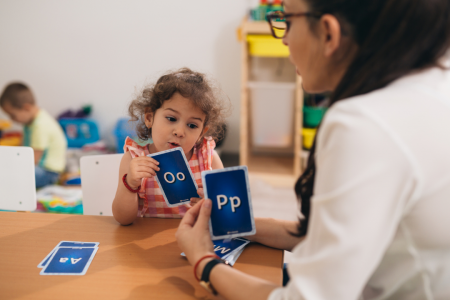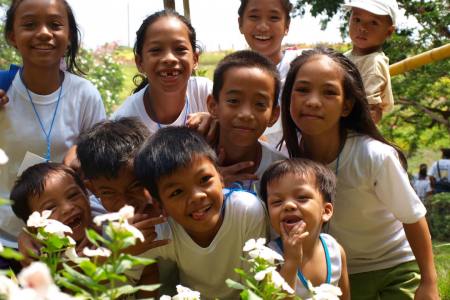Like everywhere else around the globe, parents face a big decision when it comes to choosing between international and local kindergarten schools in Malaysia. When you think of it, the decision equates to picking the first building block for their child’s education! Thus, to make the right choice, it’s important for parents to really understand what each type of school offers.
Kindergarten education in Malaysia serves as the initial stepping stone for children aged between 4 to 6 years old. It lays the groundwork for their holistic development, encompassing cognitive, social, emotional, and physical aspects. Recognized for its importance, kindergarten education is regulated by the Ministry of Education to ensure quality standards across the board.
By comprehending the intricacies of the systems between both local and international kindergarten schools, parents can make informed choices that align with their child’s needs and aspirations. So, let’s take a closer look at these options as we elaborate further on the breakdown of both local and international kindergarten schools right here in Malaysia.
In the Early Years stage, the curriculum focuses on foundational skills such as language development, social interaction, and motor skills enhancement. This is done through play-based learning where children explore various concepts, laying the groundwork for future academic pursuits.
Transitioning into Reception, the curriculum expands to encompass more structured learning experiences. At this stage, emphasis is placed on literacy and numeracy skills, fostering curiosity and independent thinking while integrating diverse subjects, including science, arts, and physical education, cultivating a well-rounded educational experience.

How International Kindergarten Schools in Malaysia Benefit Your Child
The decision to opt for an international or local kindergarten system holds profound implications for a child’s educational journey. It not only shapes their academic trajectory but also influences their cultural exposure, language proficiency, and global outlook. Understanding the distinctive features of each system is essential for parents to make a well-informed decision. International kindergarten schools in Malaysia offer a globally-oriented educational experience rooted in diverse philosophies such as Montessori, Reggio Emilia, or Waldorf. These systems prioritize experiential learning, creativity, and critical thinking, fostering a dynamic environment conducive to exploration and discovery. International kindergarten systems emphasize child-centered approaches, where learning is tailored to individual needs and interests. They prioritize holistic development, nurturing not only academic prowess but also social-emotional intelligence and cultural awareness. The curriculum in international kindergartens is often flexible and interdisciplinary, integrating various subjects seamlessly. Pedagogical approaches focus on hands-on activities, project-based learning, and inquiry-based methods to stimulate curiosity and engagement among students. International kindergartens celebrate diversity and promote cross-cultural understanding. They often feature a multicultural environment where children interact with peers from different backgrounds, fostering a global mindset from an early age.
The Impact of the Local Kindergarten System in Malaysia on Your Child
Local kindergarten systems in Malaysia are deeply rooted in the country’s cultural heritage and educational framework. They uphold traditional values while integrating modern pedagogical practices to cater to the evolving needs of young learners.
Local kindergarten systems follow the national curriculum guidelines, emphasizing the acquisition of Bahasa Malaysia, English, and basic numeracy skills. They prioritize education values, instilling moral values and patriotism alongside academic learning.
Teaching methods in local kindergartens often involve structured lessons and rote learning, focusing on building foundational skills in language, mathematics, and science. The curriculum emphasizes Malaysian culture, history, and traditions, fostering a sense of identity and belonging among students.
Local kindergartens play a crucial role in preserving and promoting Malaysian culture and language. Through various activities, festivals, and language immersion programs, children develop a strong sense of pride in their heritage while also acquiring essential linguistic skills.

Key Difference Between Local and International Kindergarten Schools in Malaysia
International kindergarten systems typically offer a more liberal and exploratory approach to learning, encouraging creativity and independent thinking. While local kindergartens focus on foundational skills and academic readiness, they may sometimes lack the flexibility and depth of international curricula.
International kindergartens foster cultural sensitivity and global awareness, preparing children for an increasingly interconnected world. However, local kindergartens contribute to the preservation of national identity and cultural heritage, instilling a sense of belonging and community among students.
Parents’ expectations often vary based on their aspirations for their children’s future. Some may prioritize academic excellence and global competence, favoring international kindergarten systems. Others may value cultural identity and language proficiency, opting for local kindergarten systems that align with traditional values.

Key Factors Parents Should Consider in Both Kindergarten Systems
Cost and Affordability
International kindergarten education may come with a higher price tag due to additional facilities, resources, and international accreditation. Local kindergartens, on the other hand, tend to be more affordable, making them accessible to a broader spectrum of families.
Proximity and Accessibility Factors
The location of the kindergarten plays a significant role in parents’ decision-making process. Proximity to home or workplace, transportation options, and safety considerations are essential factors to consider when choosing between international and local systems.
Personalized Learning and Child’s Needs Alignment
Understanding your child’s learning style, interests, and developmental needs is paramount in selecting the right kindergarten system. Whether it’s the individualized approach of international kindergartens or the structured environment of local ones, ensuring alignment with your child’s personality and preferences is key.
As we read through the insights above, a clear perspective can be seen on how the choice between international and local kindergarten systems in Malaysia is a deeply personal decision that requires careful consideration of various factors.
By weighing the academic, cultural, and financial aspects, parents can make an informed choice that sets their child on a path of holistic development and educational success. A tip for parents is to vet some of the best or top 10 kindergarten schools in Malaysia around you, both international and local before making the necessary filtration process according to your child’s needs and your family’s best circumstances.
Whether it’s embracing global perspectives or preserving local traditions, the ultimate goal remains the same: providing children with a nurturing and enriching early education experience tailored to their unique needs and aspirations.



